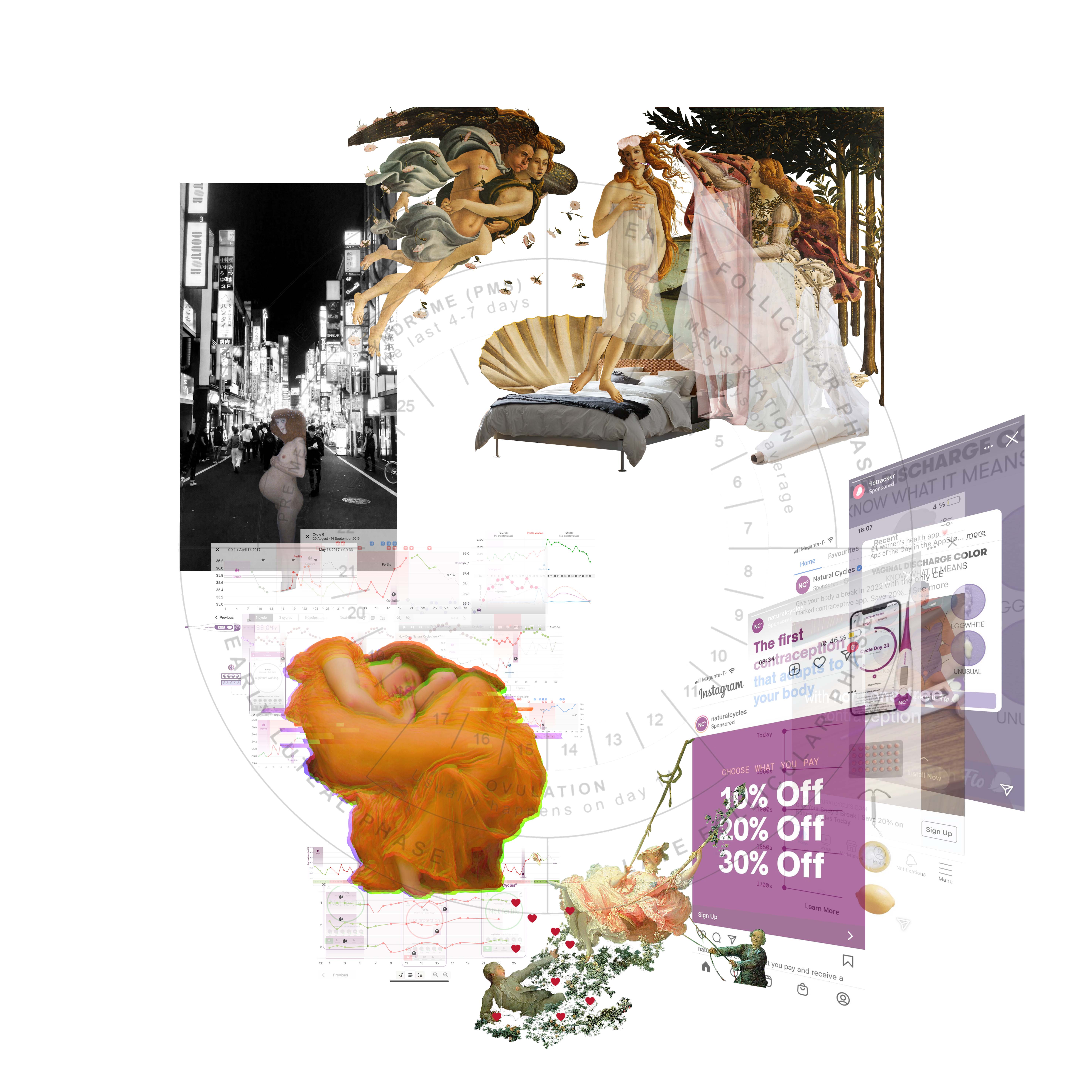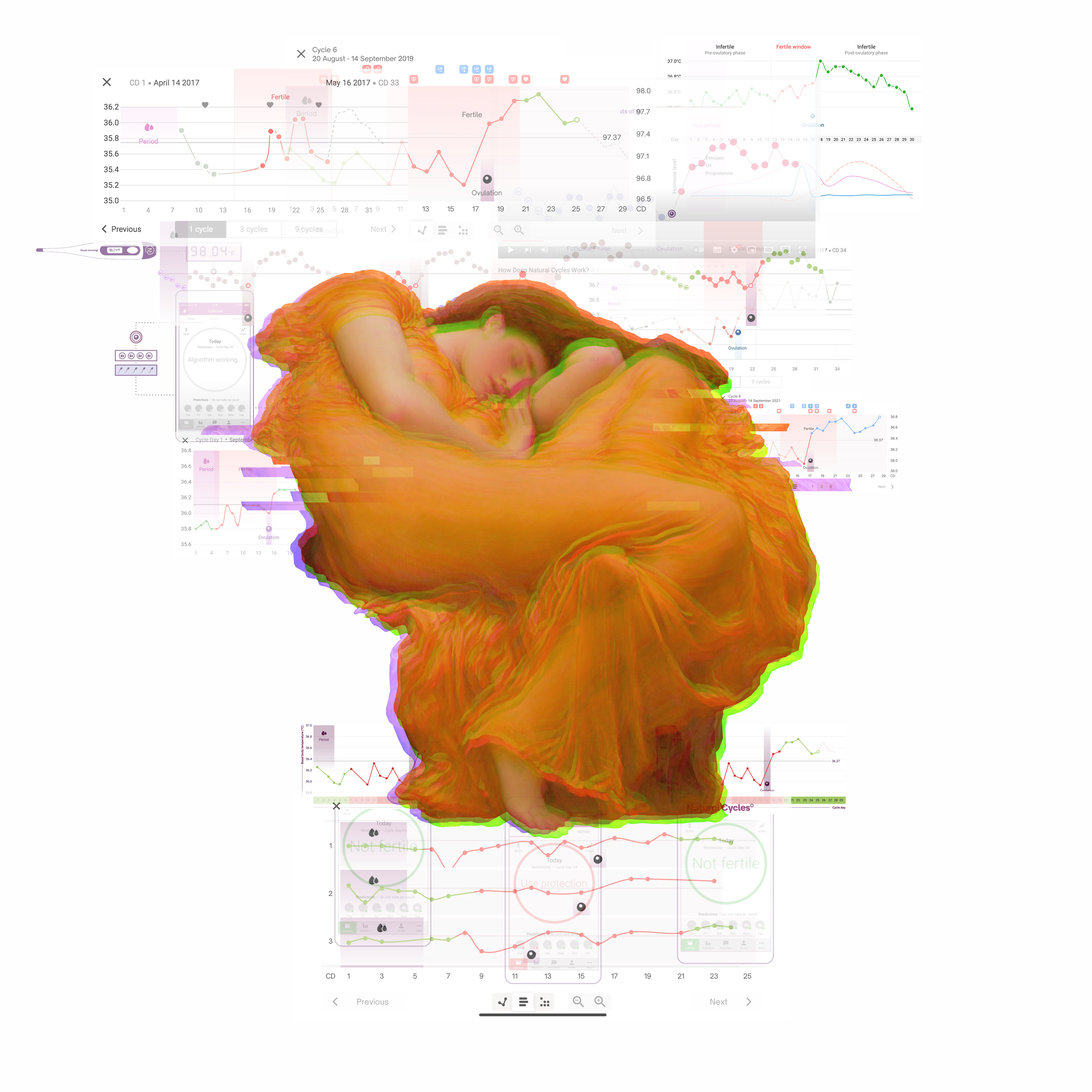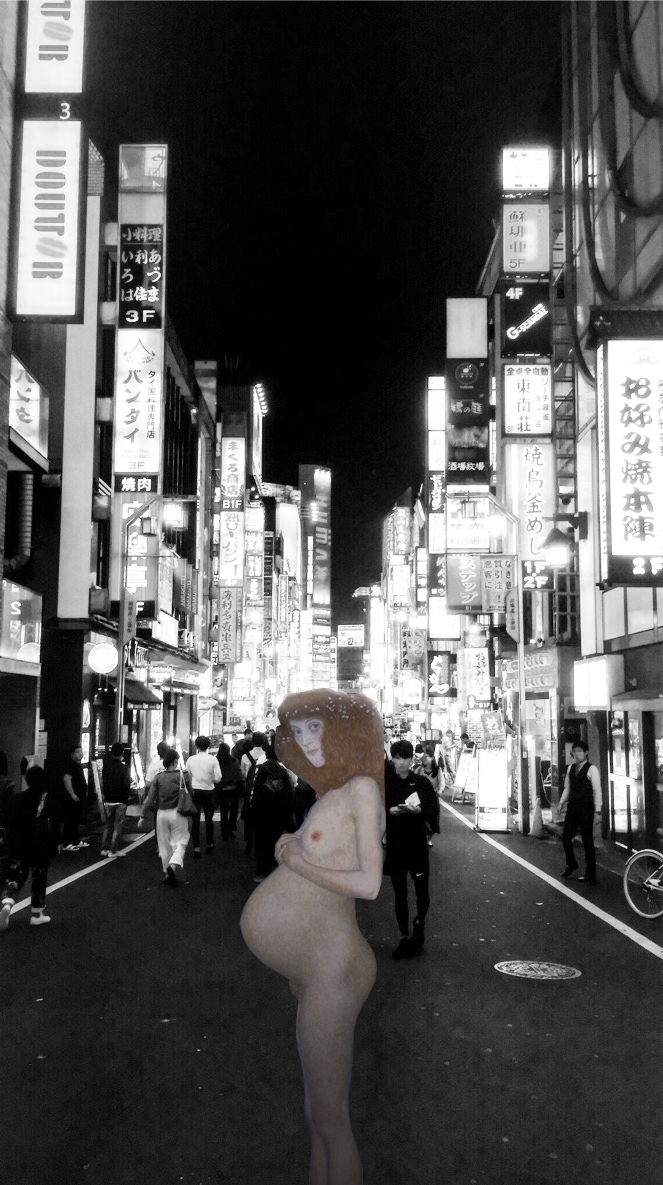Natural Cycles
Natural Cycles: The Aesthetics and Architectures of Femtech' – Carmen Lael Hines
Natural Cycles: The Aesthetics and Architectures of Femtech' – Carmen Lael Hines
Collagework accompanying the essay in the book: 'Reality Harvester: Nature after Data after Nature'

In this essay, Carmen Lael Hines, examines the contraceptive app Natural Cycles.
The essay exposes the hidden reality behind Natural Cycles' sleek interface. The app's effectiveness relies heavily on users adhering to a demanding self-monitoring routine, which the advertisements conveniently downplay. This "seamless utopia" ignores the complexities of daily life and creates unrealistic expectations. It promises freedom while actually reinforces a controlling and unrealistic lifestyle for women.
Natural Cycles is anything but natural. The app relies heavily on technology and creates a cyborgian relationship between the user and their body. Furthermore, the app fuels the data economy by turning a woman's body into a source of profit through data collection and sale.
The essay concludes by drawing parallels between Natural Cycles and neoliberal ideology. The app reinforces social norms that benefit platform capitalism, ultimately controlling user behavior through a seemingly empowering guise.
Excerpt from the essay accompanied with the collages

<<Adaptability, flexibility, seamless utopia, where less seductive logistics of life, and their labour-intensive normalcies and complexities, are packaged away in facilities we will never see. >>

<<It becomes clear in researching the app, that the self-monitoring and regulatory lifestyle revealed in the adverts is not only a seductive media strategy, but necessity for the technology’s functionality. >>

<<Glitch, error, temporal irregularity and the incalculable are inevitable parts of human life, which the platform world, and the forces of capital behind it, attempt to smooth over. These apps are anything but ‚natural‘. They rely on technology as a mediator. One could even say they are Cyborgian.>>

<<What ‚risk‘ entails, however, becomes troublingly subjective, and contingent on things such as class, age, and overall lifestyle.>>

"Reality Harvester" explores the impact of data overload in a pandemic world. This book and website project investigates how big data, automation, and technology blur the lines between nature and digital communication. It features contributions from various disciplines like art, architecture, and environmental humanities.
Collagework: Pieter De Cuyper (2022).
Essay: Carmen Lael Hines, (2022).
Natural Cycles: The Aesthetics and Architectures of Femtech. In L. Boulton, T. L. Devgun, & B. J. Engblom (Eds.), Reality Harvester: Data After Nature After Nature. Skogen.